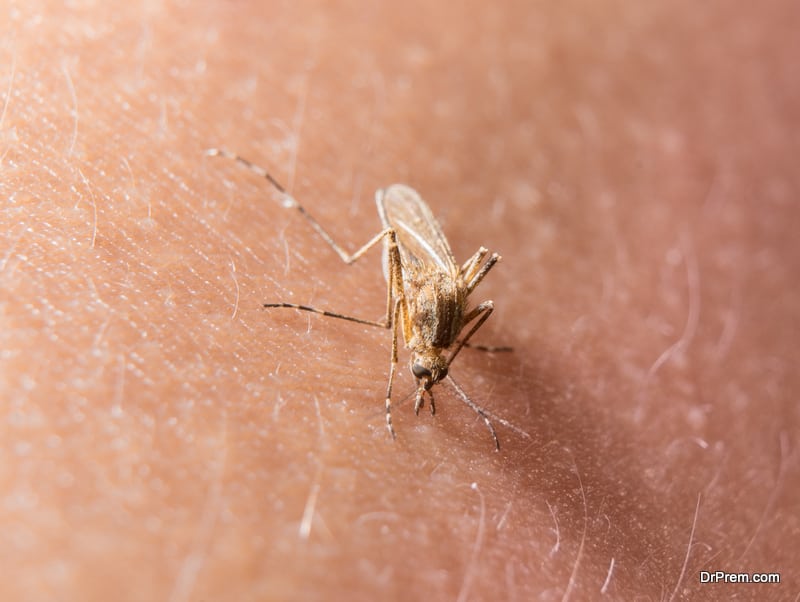West Nile Virus AKA WNV is carried by mosquitoes and is the cause of a major infection leading to high fever. West Nile virus bite is found to have a couple of adverse effects on your body; and, in highly severe cases, can even lead to death. It causes a number of neurological disorders simultaneously affects the immunity of your body.
WNV is believed to have first appeared in continents such as Africa, Europe, North America, and West Asia. It certainly gets transmitted through birds and mosquitoes. Humans, as well as mammals, fall prey to it and t can easily transmit from one living creature to another.
Effects of the West Nile Virus bite:
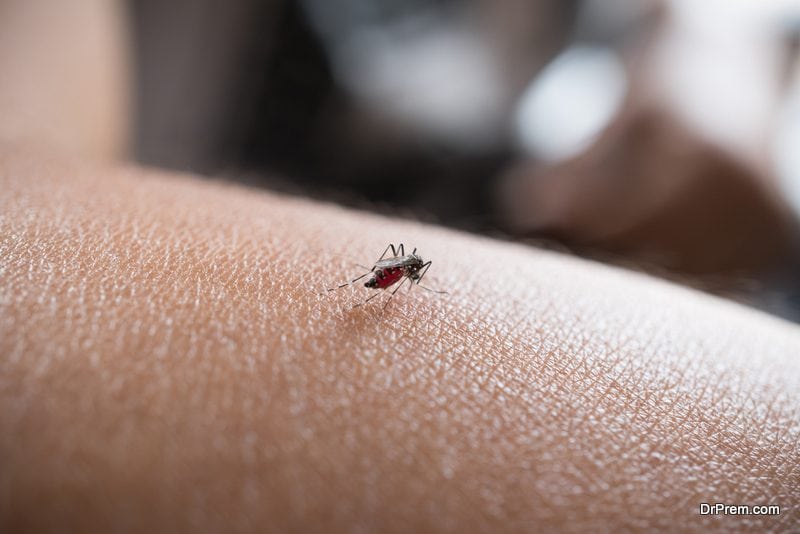 The effect of West Nile virus bite on the human body was first found in a woman in Uganda that comes in the West Nile district. A couple of years later, it was discovered that birds such as crows died because of infection from the West Nile Virus. It also led to encephalitis and paralysis in humans due to little to no symptomatic treatment.
The effect of West Nile virus bite on the human body was first found in a woman in Uganda that comes in the West Nile district. A couple of years later, it was discovered that birds such as crows died because of infection from the West Nile Virus. It also led to encephalitis and paralysis in humans due to little to no symptomatic treatment.
Prior to 1997, it was said that birds weren’t at risk of this disease, but the studies conducted later on spoke otherwise. Around 1999, the West Nile Virus had spread all over the United States of America. It led to a very dangerous epidemicaffecting a large number of people due to this disease. Approximately 20 human cases were registered with WNV, and 4 of these resulted in death.
All of the 4 people who died due to lack of West Nile virus prevention were 68 or above which shows that older people are ata major risk for this infection. After this area, it moved to Canada and Venezuela. In the years that followed, people staying in Greece, Israel, Romania, and Russia experienced many such outbreaks.
Symptoms of the West Nile Virus bite:
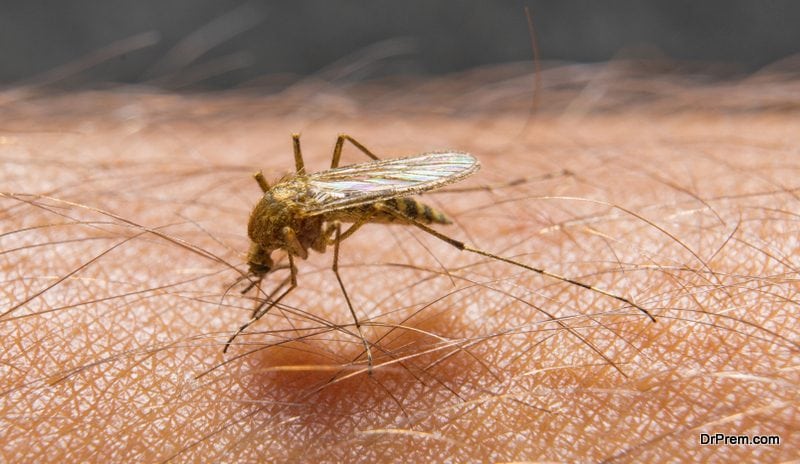 West Nile virus symptoms aren’t very apparent, to say the least. Of all the people affected by West Nile virus, only 20% display any signs or symptoms of the disease, which later culminates to fever. These symptoms of the West Nile virus bite include fever, nausea, vomiting, body pain, red patches or rashes on the skin, or swollen lymph glands.
West Nile virus symptoms aren’t very apparent, to say the least. Of all the people affected by West Nile virus, only 20% display any signs or symptoms of the disease, which later culminates to fever. These symptoms of the West Nile virus bite include fever, nausea, vomiting, body pain, red patches or rashes on the skin, or swollen lymph glands.
In addition to this, the more severe or dangerous form of this disease occurs in only about 1 in 150 people with the virus. The symptoms also include high fever and muscle weakness. Any person belonging to any age, race, sex, or lifestyle is vulnerable to infection from the West Nile Virus. WNV causes serious health issues in people over the age of 50.
Individuals who have undergone transplant surgeries, i.e. immunocompromised patients are also at a high risk of developing a serious illness due to WNV. The incubation stage for the virus is 3-14 days. In other words, it can remain inactive in your body, but alive, for 3-14 days after infection.
Treatment for the West Nile Virus bite:
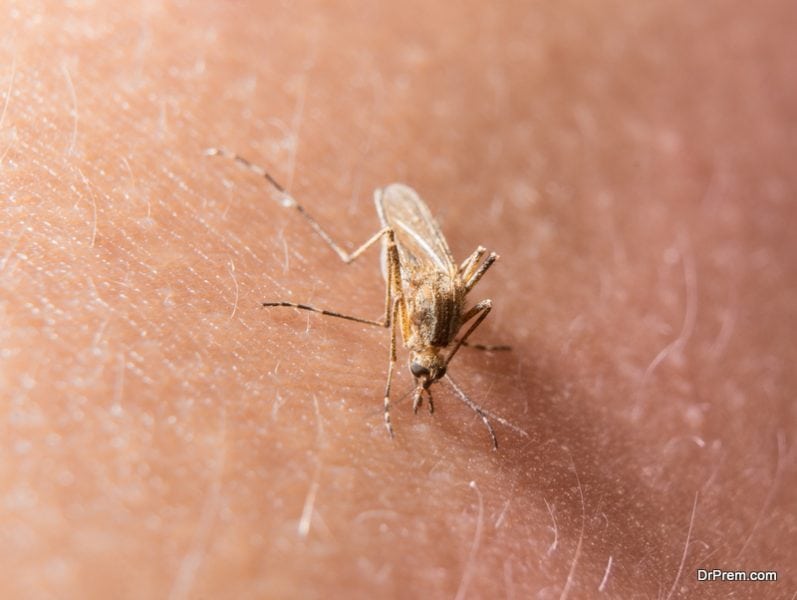 As per the current advancements in science, there is no particular treatment for West Nile virus bitefever. However, efforts are being made to come up with new treatment procedures that can get to the root cause of the infection and destroy it. The absence of a vaccination for WNV makes it practically impossible to save oneself from getting affected by it; if one gets bitten by a mosquito carrying WNV.
As per the current advancements in science, there is no particular treatment for West Nile virus bitefever. However, efforts are being made to come up with new treatment procedures that can get to the root cause of the infection and destroy it. The absence of a vaccination for WNV makes it practically impossible to save oneself from getting affected by it; if one gets bitten by a mosquito carrying WNV.
True that there are symptomatic relief treatments, but they are of little to no progress has happened as far as West Nile virus treatment is concerned. Which is why, the Director of Environmental Health Logan Calhoun, Echoing Wakefield, recommends prevention as the surest way of avoiding this infection. Mosquitoes mainly carry NWV; therefore, if you can use methods and hacks to prevent yourself from mosquito bites; your chances of contracting the infection drop multiple times.
Preventive measures for the West Nile Virus bite:
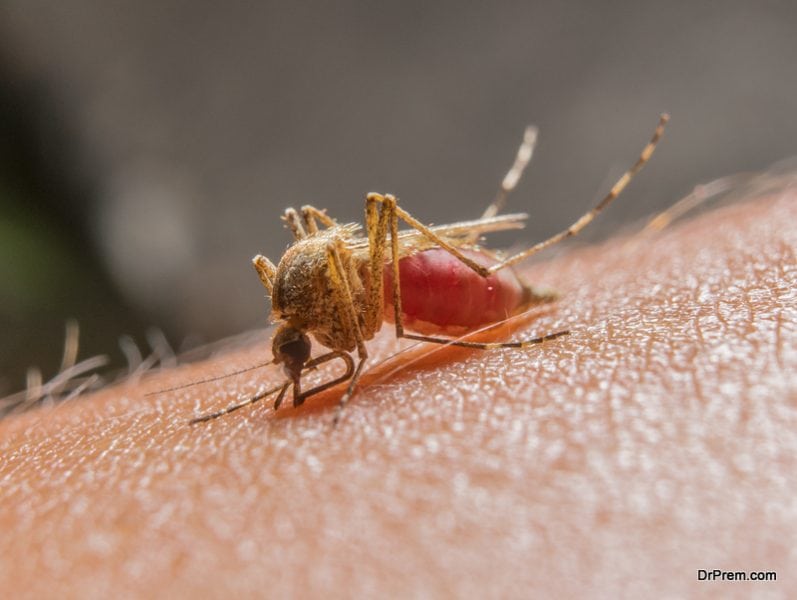 The West Nile virus bite affects birds and animals more than humans. There is an urgent need for establishing an animal health surveillance department so that this situation comes under control. Based on their research, a prior notice can be given to veterinary and public authorities regarding their health conditions.
The West Nile virus bite affects birds and animals more than humans. There is an urgent need for establishing an animal health surveillance department so that this situation comes under control. Based on their research, a prior notice can be given to veterinary and public authorities regarding their health conditions.
This is one of the best preventive measures in order to ensure that the infection is not passed on to other mortal beings. In developed countries like America, even on the death of a bird, the local authorities are expected to be informed for future analysis. No such vaccine has been introduced to fight against this virus.
Having said that, West Nile virus prevention can be managed to a large extent by creating awareness among people about its risk. Some of the measures that should be adopted to stay away from it are as follows:
- People are advised to use mosquito nets and insect repellents whether outdoors or indoors.
- One must avoid going out at the peak biting times like sunset.
- Even when you do go out, make sure you are walking or running or in constant motion. Mosquitoes tend to bit only if you sit still and not otherwise.
- Whenever you get out of your home in the direct outdoors, wear light coloured, full-sleeved clothes.
- The most practical and useful method is to make dustbins available at every place.
- Try to move away from open gutters or manholes with stagnant waters.
- If you have pets, subject them to a routine check-up every 6
- When dealing with a sick animal, always put on gloves.
Steps should be taken by the government to avoid breeding grounds for mosquitoes in lush green trees and ponds with still, murky waters. Though this virus does not have any vaccine and is too dangerous since the West Nile virus treatment does not practically exist, people can still avoid it by taking precautionary measures like the ones mentioned above.
Conclusion:
The outbreak of West Nile virus symptoms isn’t heard of a lot in Asian counties like India, but that doesn’t mean it can’t break out in these places. The best way to ensure that you don’t fall victim to West Nile virus bite, or malaria, or dengue or any other insect-borne diseases, cover up as much as you can to avoid mosquito bites.


